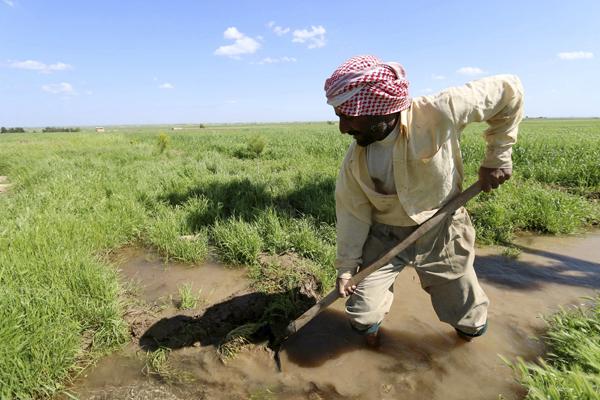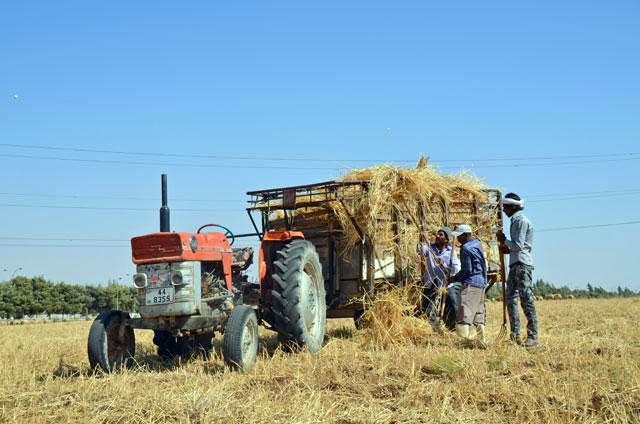You are here
Iraq recaptures some grain silos seized by Daesh
By Reuters - Jun 09,2015 - Last updated at Jun 09,2015

Iraqi Shiite fighters from the Popular Mobilisation Force deploy in the city of Baiji on Tuesday, north of Tikrit, as they fight alongside Iraqi forces against Daesh to try to retake the strategic town for a second time (AFP photo)
LONDON — Iraq has re-taken control of some grain silos previously seized by Daesh, but most of the grain held cannot be used as militants aim to destroy sites when retreating, a senior grain official said on Tuesday.
Daesh, the breakaway Al Qaeda group, which declared an “Islamic caliphate” across parts of Syria and Iraq last summer, has seized fertile areas and controls territory that normally produces significant quantities of Iraq's wheat crop.
Saad Al Hamdinee, general manager, Grain Board of Iraq, told Reuters the Iraqi government had taken control of grain facilities in areas including the town of Al Alam, which produced 60,000 tonnes, and a site in the northern Iraqi city of Samarra, which produced around 120,000 tonnes of grain.
“When the terrorists leave any area they try to destroy the infrastructure there,” he said on the sidelines of a grains conference in London.
“All the wheat in the silos — we could not make any use of it because they are destroyed,” he said via a translator.
Hamdinee said Iraqi authorities aimed to salvage facilities whenever it was possible.
“For example a silo in Tikrit has been destroyed in a way we can’t rebuild it again,” he said.
Al Alam is close to Tikrit, which was the home city of executed former president Saddam Hussein.
Hamdinee had no data on the total amount of grain Daesh had under its control.
“We have several provinces that are beyond the control of the government under the control of a terrorist organisation. We shall take over them,” he said.
Wheat production
He said Iraq expects to produce 3.5 million tonnes of wheat this year as the country attempts to boost output.
“This year in particular our expectation of local production of wheat is 3.5 million tonnes,” Hamdinee told the International Grains Council (IGC) conference.
He said this was “in accordance to our plans put in place over the last two years”.
Hamdinee said Iraq still expected to import 1 million tonnes of wheat this year, in line with the previous year, which will be blended with domestic production.
“We need to import because the bread they use to bake in Iraq needs high gluten. Our wheat is low gluten,” he said.
The IGC has forecast Iraq’s wheat imports in the 2015-16 season at 3.4 million tonnes, versus 2.7 million in 2014-15. The IGC forecast wheat production at 2 million tonnes in 2015/16 versus 3 million in 2014-15.
The US Department of Agriculture put consumption at 6.3 million tonnes in 2015/16, down slightly from 6.5 million in 2014/15.
Hamdinee said its production numbers did not “represent all provinces of Iraq” due to the control of areas by Daesh.
“When we re-control these areas, the figures will be up,” he said.
Hamdinee said Iraq’s grain board normally imported wheat from the United States, Australia, Canada, Russia and Romania, while it imported rice from South America, the United States, India, Pakistan and Thailand.
Related Articles
DUBAI — Syria's wheat crop this year was the smallest in three decades as war and drought cut production by around 30 per cent, the United N
ABU DHABI/HASAKA, Syria — Syria's war has destroyed agricultural infrastructure and fractured the state system that provides farmers with se
AMMAN — The Kingdom’s current reserve of wheat stands at around one million tonnes and can cover local consumption for 12 months, Minister o


















